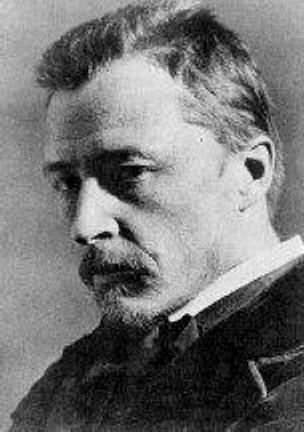|
Italienisches Liederbuch
(English: Italian songbook) is a collection of translations of anonymous Italian poems and folk songs into German by Paul Heyse Paul Johann Ludwig von Heyse (; 15 March 1830 – 2 April 1914) was a distinguished German writer and translator. A member of two important literary societies, the '' Tunnel über der Spree'' in Berlin and ''Die Krokodile'' in Munich, he wrote n ... (18301914). It was first published in 1860. In 1892, the composer Hugo Wolf (18601903) published a collection of 22 Lieder (settings for voice and piano) on poems from the volume, also under the title '' Italienisches Liederbuch''. In 1896, he published a second collection, containing a further 24 Lieder. References German poetry collections 1860 books {{Poetry-collection-stub ... [...More Info...] [...Related Items...] OR: [Wikipedia] [Google] [Baidu] |
Paul Heyse
Paul Johann Ludwig von Heyse (; 15 March 1830 – 2 April 1914) was a distinguished German writer and translator. A member of two important literary societies, the ''Tunnel über der Spree'' in Berlin and ''Die Krokodile'' in Munich, he wrote novels, poetry, 177 short stories, and about sixty dramas. The sum of Heyse's many and varied productions made him a dominant figure among German men of letters. He was awarded the 1910 Nobel Prize in Literature "as a tribute to the consummate artistry, permeated with idealism, which he has demonstrated during his long productive career as a lyric poet, dramatist, novelist and writer of world-renowned short stories." Wirsen, one of the Nobel judges, said that "Germany has not had a greater literary genius since Goethe." Heyse is the fifth oldest laureate in literature, after Alice Munro, Jaroslav Seifert, Theodor Mommsen and Doris Lessing. Life Berlin (1830–54) Paul Heyse was born on 15 March 1830 in Heiliggeiststraße, Berlin. His father ... [...More Info...] [...Related Items...] OR: [Wikipedia] [Google] [Baidu] |
Hugo Wolf
Hugo Philipp Jacob Wolf (13 March 1860 – 22 February 1903) was an Austrian composer of Slovene origin, particularly noted for his art songs, or Lieder. He brought to this form a concentrated expressive intensity which was unique in late Romantic music, somewhat related to that of the Second Viennese School in concision but diverging greatly in technique. Though he had several bursts of extraordinary productivity, particularly in 1888 and 1889, depression frequently interrupted his creative periods, and his last composition was written in 1898, before he suffered a mental collapse caused by syphilis. Early life (1860–1887) Hugo Wolf was born in Windischgrätz in the Duchy of Styria (now Slovenj Gradec, Slovenia), then a part of the Austrian Empire. Herbert von Karajan was related to him on his maternal side. He spent most of his life in Vienna, becoming a representative of a "New German" trend in Lieder, a trend which followed from the expressive, chromatic and d ... [...More Info...] [...Related Items...] OR: [Wikipedia] [Google] [Baidu] |
Lieder
In Western classical music tradition, (, plural ; , plural , ) is a term for setting poetry to classical music to create a piece of polyphonic music. The term is used for any kind of song in contemporary German, but among English and French speakers, is often used interchangeably with "art song" to encompass works that the tradition has inspired in other languages as well. The poems that have been made into lieder often center on pastoral themes or themes of romantic love. The earliest lied date from the late fourteenth or early fifteenth centuries, and can even refer to from as early as the 12th and 13th centuries. It later came especially to refer to settings of Romantic poetry during the late eighteenth and nineteenth centuries, and into the early twentieth century. Examples include settings by Joseph Haydn, Wolfgang Amadeus Mozart, Ludwig van Beethoven, Franz Schubert, Robert Schumann, Johannes Brahms, Hugo Wolf, Gustav Mahler or Richard Strauss. History For German sp ... [...More Info...] [...Related Items...] OR: [Wikipedia] [Google] [Baidu] |
Italienisches Liederbuch (Wolf)
''Italienisches Liederbuch'' (English: Italian songbook) is a collection of 46 Lieder (songs for voice and piano) by Hugo Wolf (18601903). The first 22 songs (Book 1) were composed between September 1890 and December 1891, and published in 1892. The other 24 songs (Book 2) were composed between March and August 1896, and published the same year. The time lag between the two volumes was caused by Wolf's long-proposed opera, ''Der Corregidor'' (1895), which might have been inspired by his personal love triangle with his friend’s wife Melanie Köchert. The 46 lyrics of the songs were taken from an anthology of Italian poems by Paul Heyse (18301914), translated into German and published with the title of '' Italienisches Liederbuch'' in 1860. Despite Heyse’s diverse poetic selections, Wolf preferred the ''rispetto'', a short Italian verse usually consisting of eight lines of ten or eleven syllables each, as a result of which the songs are short. Description It is usually perfo ... [...More Info...] [...Related Items...] OR: [Wikipedia] [Google] [Baidu] |
German Poetry Collections
German(s) may refer to: * Germany (of or related to) **Germania (historical use) * Germans, citizens of Germany, people of German ancestry, or native speakers of the German language ** For citizens of Germany, see also German nationality law **Germanic peoples (Roman times) * German language **any of the Germanic languages * German cuisine, traditional foods of Germany People * German (given name) * German (surname) * Germán, a Spanish name Places * German (parish), Isle of Man * German, Albania, or Gërmej * German, Bulgaria * German, Iran * German, North Macedonia * German, New York, U.S. * Agios Germanos, Greece Other uses * German (mythology), a South Slavic mythological being * Germans (band), a Canadian rock band * "German" (song), a 2019 song by No Money Enterprise * ''The German'', a 2008 short film * "The Germans", an episode of ''Fawlty Towers'' * ''The German'', a nickname for Congolese rebel André Kisase Ngandu See also * Germanic (other) * Germa ... [...More Info...] [...Related Items...] OR: [Wikipedia] [Google] [Baidu] |

